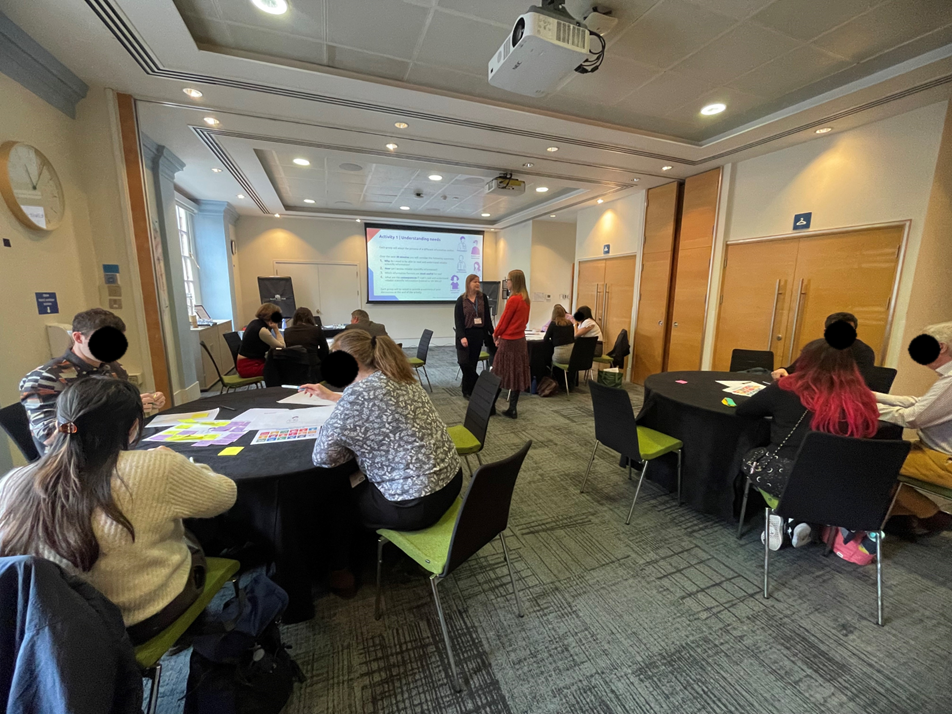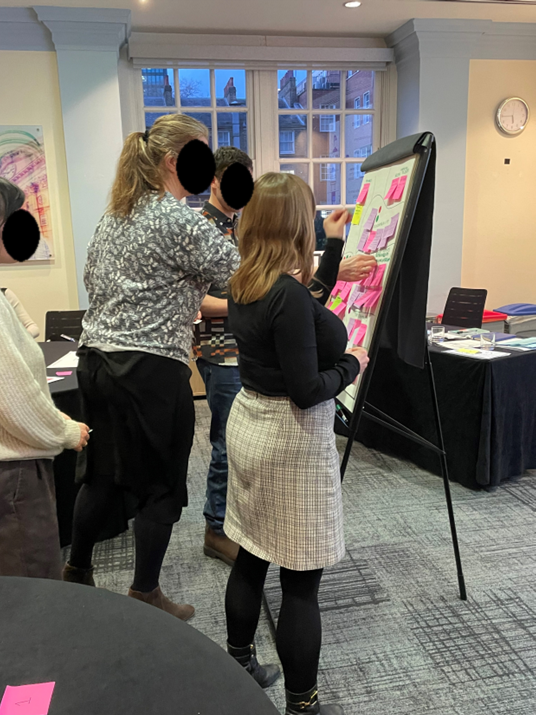In a crowded online world, we need clear, concise, reliable scientific information to make informed decisions about our research, environment and health. The Open Pharma workshop More power to the reader: how can we improve research communication by making content more readable? prompted participants of the 2025 Researcher to Reader Conference to consider the value of easy-to-digest content from multiple perspectives and create recommendations for how best to meet reader needs. Here, co-facilitators Joana Osório and Laura Dormer reflect on the workshop and ask, ‘How can we reach the readers?’
Why should research information be understandable?
The volume of scientific and medical research publications is growing every year, but it is often inaccessible to non-specialists, and even time-poor specialists, who need to stay informed. However, the ability to understand and act on published research is crucial.
Improving the understandability of research, for example by using plain language, can help overcome this problem and enable diverse audiences to access essential information and make informed choices.
The first activity of the More power to the reader workshop centred around the question of why there is a need for understandable research content. To do this, participants were challenged to consider the needs of a variety of different audiences, including policymakers, healthcare professionals, patients and caregivers, as well as authors and researchers.

Putting themselves in the shoes of these stakeholders, participants considered why they might need to be able to access research; how they might access it; what formats they might find the most useful; and what the consequences might be if research isn’t accessible to them.
Participants highlighted a range of issues; for example, although researchers may focus on methodology and data details, healthcare professionals need actionable conclusions and patients require information that directly informs their healthcare decision-making. The difficulty of condensing complex research into actionable insights was highlighted, particularly in the context of time-poor policymakers.
Different types of research output were discussed, including datasets, along with the variety of formats research communications could take – from plain language summaries, to infographics, podcasts and video.
The learnings from this first activity helped to build out the various personas under consideration, leading into the second activity focusing on the barriers each group might encounter in accessing and understanding research.
What’s stopping readers from finding and using research information?
The second workshop activity was focused on the barriers that prevent each audience group from reading and understanding research information. The participants’ feedback was organized by topic, and they were then invited to vote on the top three barriers they believed to have the greatest effect on getting the right content to readers who need it.

The four most-voted topics were misinformation and lack of credibility; insufficient availability of audience-tailored content; literacy barriers; and content discoverability problems.
Finding and identifying reliable content can be difficult for many readers, especially if it’s not published in a journal (such as grey literature and conference presentations). Duplicate or siloed sources and artificial intelligence hallucinations complicate the search for trustworthy information. Even when high-quality research content is available, it may be too detailed, not easy to understand and not suitable for the purposes of non-researchers.
The participants highlighted the difficulties many readers had in getting access to published research that was behind paywalls, and the challenges associated with accessing and using underlying data that are not available or correctly catalogued. Time constraints in a world of abundant information and educational barriers were also mentioned.
How can we reach the readers?
In the third workshop session, the participants explored the four most-voted barriers in more detail. They were prompted to consider the stakeholders most affected by each barrier, and to think about resources, research or other approaches that could help to overcome these obstacles.
At the end of the workshop, the participants came up with a shortlist of recommendations to address misinformation and improve the credibility of research, and to make sure different readers can find and understand scientific content. According to the participants, we need:
- Critical thinking and education about research information for non-specialists
- Training for authors, publishers and editors on how to communicate with multiple audiences.
- Information in non-technical language and languages other than English.
- A variety of formats tailored to different audiences and preferences (e.g. graphics, video, audio), and tailored to different information needs.
- Summaries to help with information overload and online consumption of content.
- Peer review of plain language summaries and other types of accessible content.
- Improved discoverability through better metadata (including persistent identifiers), indexing, clear versioning, and dissemination via non-scientific channels.
- Trust markers, transparency of peer review and retractions, and clarity and consistency between publishers to counteract misinformation and promote credibility.
We invite everyone involved in the production and dissemination of research outputs to implement the workshop recommendations, and to support meaningful, effective and timely communication between researchers and readers.
You can read more about the workshop and the participants’ discussions in the full workshop report.
The views expressed in this blog post are those of the authors and do not necessarily reflect those of Open Pharma and its Members and Supporters.
Joana Osório is a Communication Team Leader at Oxford PharmaGenesis and Project Lead of Open Pharma.
Laura Dormer is Co-Founder and Editorial Director at Becaris Publishing Limited.
The authors would like to thank Sarah Thomas (Global Medical Publications and Communications Senior Manager at Ipsen) for co-facilitating the workshop. We would also like to thank Ben Kaube, Cassie Bowman, Jade Koo, Jennifer Gibson, Michelle Herbert, Nazim Mohammedi, Riana Bahl, Ruth Miller, Sarah Mckenna, Sarah Stanley, Simon Inger and Toby Green for participating in this workshop and sharing their valued contributions.



